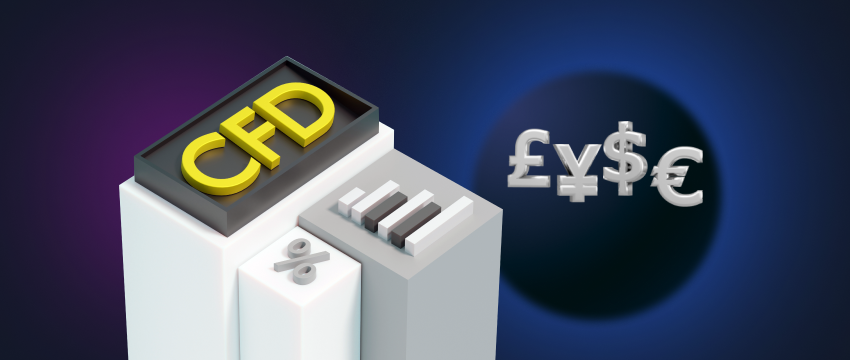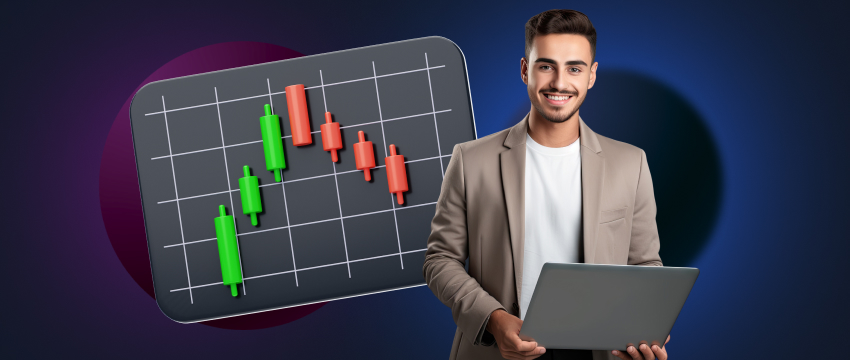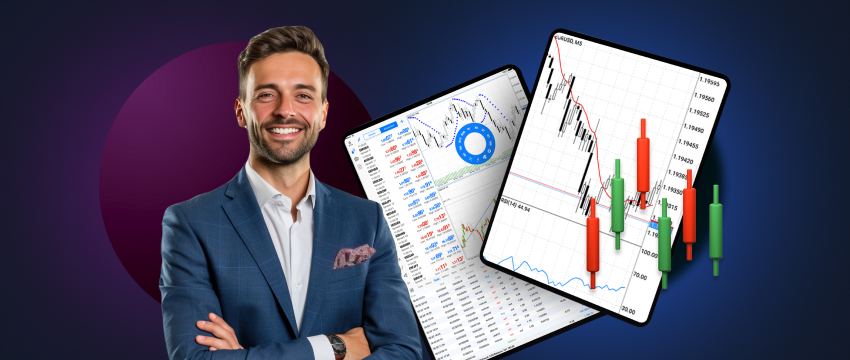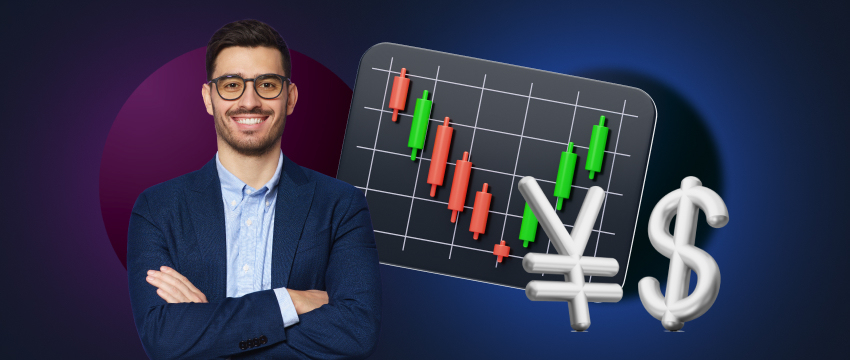CFD (Contract for Differences) trading has become popular for several different reasons. In this article, we’ll expand on why, so that you gain a better understanding of this form of trading.
Qu’est-ce-que les CFD ?
CFD stands for Contract for Difference. It is a financial agreement between a buyer and seller that specifies that the buyer is obligated to pay the seller the difference in the price of an asset between the time the contract is opened and the time it is closed. The underlying asset may vary. In other words, unlike forex trading which focuses on currency pairs only, in CFD trading the asset may include shares, commodities, cryptocurrencies, indices, etc. Traders use Contracts for Difference to speculate on whether prices will move up or down, and make trading decisions accordingly.

Unique features of CFDs
CFDs come with their own distinct characteristics. Let’s take a look at what these are:
Forex Leverage
CFDs typically offer high leverage ratios, providing a trader with the ability to open larger positions than what their trading account would usually permit or facilitate. However, keep in mind that if not managed properly, the potential for considerable losses grows exponentially, particularly during periods of intense price movements.
Ownership
The underlying asset is not owned by the CFD trader. Instead, the trader is entering into a contract with a courtier en CFD based on the asset’s price movement.
Wide range of markets
A variety of trading strategies can be executed when trading CFDs, e.g. swing trading, day trading, longer-term trading, etc. This is attributed to the fact that CFDs give investors access to various different markets (assets) such as indices, stocks, commodities, energy, currencies, metals, cryptocurrencies, etc.
Portfolio diversification
CFD trading facilitates the diversification of a trader’s portfolio, thereby providing a way to spread risk. Diversification also enables a trader to maximise profits on a range of market opportunities.
Long and short positions
Traders can take both long positions (buying CFDs in the hope that the asset’s price will rise) and short positions (selling CFDs in the hope that the asset’s price will fall). This offers the opportunity to profit in both rising and falling markets.
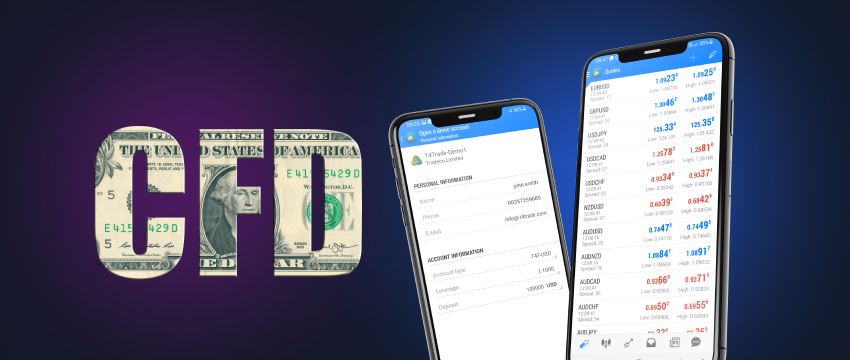
Factors impacting CFD (Contract for Differences) trading
Unlike forex trading, CFD trading is mostly affected by the supply and demand of a specific asset and shifts or trends in a particular business sector.
24/5 market access
CFD trading takes place in the OTC (over-the-counter) market. This mean’s it occurs online, with no physical exchange. CFD markets are open 24/5 allowing traders to react to global news and events as they happen.
Trading on margin
CFDs are traded on margin. What this means is that traders are only required to deposit a percentage of the total position’s value (margin) to open a trade. While this can magnify potential gains, it can also increase exposure to losses.
Couverture
CFDs can be used as a hedging tool to offset potential losses in a physical portfolio. For example, if an investor holds a portfolio of shares, they could use CFDs to hedge against potential price declines in those shares.
Despite the obvious opportunities that CFD trading offers, it’s important to note that it carries significant risks due to leverage. Traders must be mindful of the level of risk they’re prepared to take on and implement strategic risk management strategies, such as setting stop-loss orders and position sizing, to safeguard their own funds. It is also advisable for beginners to fully understand the mechanics of CFD trading and practice with a demo account before engaging in live trading.
Additionally, seeking advice from a financial advisor can be beneficial to ensure proper risk management and informed decision-making.
Ouverture d'un compte de trading démo
Ouverture d'un compte de trading démo with a reputable broker can be beneficial for several reasons, particularly if you’re new to CFD trading. For one, it allows you to learn how to use a trading platform and practice trading without risking real money. It offers a risk-free environment where you familiarise yourself with trading tools, charts, indicators, etc. A demo trading account can also help you better understand how the different financial markets operate. You can observe how assets move, analyse price patterns or trends, and get a better feel for what CFD trading looks like.
A demo account also gives you the ability to practice different trading strategies, in real-time market conditions, without putting your own money at risk. In this way, you can identify your own strengths and weaknesses as a trader, and make adjustments to your trading plan where required. Finally, know that trading can be psychologically challenging, especially when real money is at stake. Using a demo account helps build confidence in your trading decisions and reduces the emotional impact of trading losses.
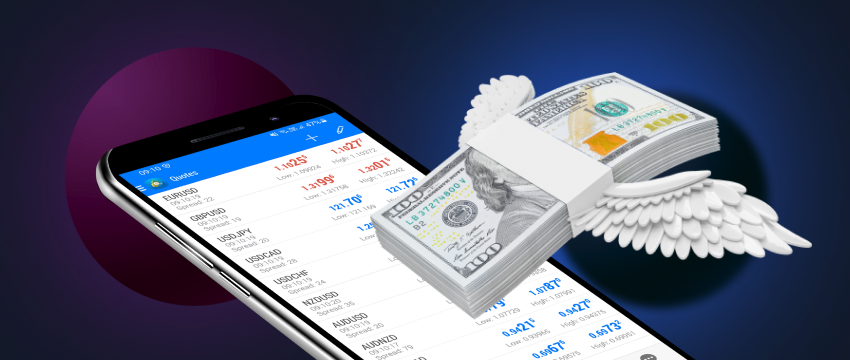
Choosing a respected broker
If you’re new to CFD trading, picking a reputable broker to help you on your journey is key. This requires finding a broker who seeks to help you achieve your trading objectives, improve your skills, and increase your knowledge. In addition, ensure you find a broker who can provide you with access to robust trading tools to boost your expertise and assist you in making better-informed trading decisions. Other factors to consider in the selection process are:
- Ressources pédagogiques. Does the trader offer a way for you to learn more about trading on an ongoing basis? This could be through trading videos, forex blogs, webinars, podcasts, etc.
- Comptes de négociation. Are you able to pick from a variety of different trading accounts, to align with your specific trading needs and experience?
- Increased trading opportunities. Does the broker offer competitive spreads, flexible leverage, fast execution and quick and easy withdrawals and/or deposits?
- Plate-forme de négociation. Does the broker offer access to an easy-to-use trading platform, like the globally renowned MetaTrader 4 platform, for more successful trading outcomes?
Is T4Trade Right for You?
T4Trade is a powerful broker with a global client base of skilled traders. T4Trade provides many of the tools and functionalities required by a trader to make informed trading decisions. They offer many resources for continuous learning, including videos, webinars, seminars, Live TV, and informative blogs. The T4Trade MetaTrader 4 platform also provides a robust system for trading, with some of the most in-demand features for trading successfully. This includes advanced technical analysis tools, automated trading, Expert Advisors, innovative charts, and so much more.
CLAUSE DE NON-RESPONSABILITÉ : Ces informations ne doivent pas être considérées comme un conseil ou une recommandation d'investissement, mais uniquement comme une communication marketing
